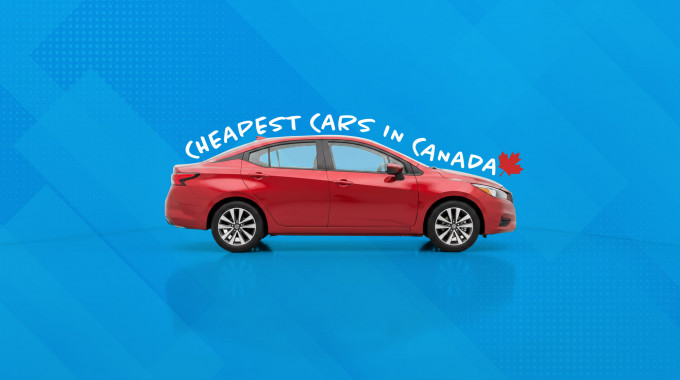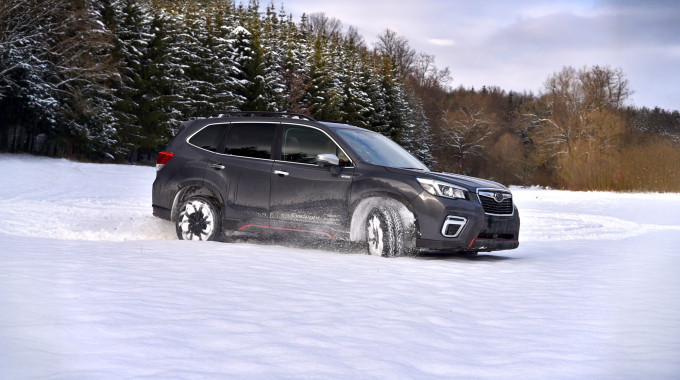
Pros and Cons of Buying a Diesel Engine Vehicle in Canada
If the time has come to shop for a new car – no doubt you have many questions swirling around in your mind. One of which may be "what fuel type do I want?"
While it may be that you have already narrowed down the search and have chosen which model you want—an SUV or a sedan, for example—another question that may have also risen is whether you would rather have a vehicle powered by a diesel engine or one that operates on gas or electricity?
If you are already familiar with vehicles powered by gas engines, let’s start this process by examining both the pros and cons of buying a diesel vehicle and how they may compare to that of the gasoline engine.
Pros of buying diesel
More fuel efficient
With improved fuel efficiency over other gasoline-fueled vehicles, with a diesel vehicle, it is likely that you will have to make fewer trips to the pump. More specifically, a diesel vehicle will provide approximately 30% more miles per gallon than a vehicle of the same size that runs on gas. So this is one method of saving some money – on top of extending your time away from those gas service stations.
May require less maintenance
While it is still true that a diesel vehicle does require that you stick to the proper maintenance schedule, including such services as oil changes, filter changes, etc. – with that being said, in many other areas, these vehicles do not require as much maintenance. Specially, the diesel model have fewer parts to be repaired as frequently , as well as no need for ignition tune-ups because they run on compression ignition versus spark plug technology.
Slower depreciation
Perhaps one of the most popular reasons for buying a diesel is the fact that they typically fetch a higher resale value. While albeit, a higher upfront price as well plays a factor in their higher trade-in value, diesel engines are also more likely to last longer and these vehicles are often kept for a long time by the same owner. Either way, it is realistic to say that more often than not, these vehicles tend to depreciate at a slower rate than those with gasoline engines.
The cons of buying diesel
Diesel fuel is more expensive than gasoline
While it is also true that fuel prices do range throughout Canadian markets – on average, diesel fuel sits approximately 20% higher in price than gasoline. If you find diesel at a lower price in your area, you can count yourself lucky – as it is often higher in other regions – on top of gas prices overall being quite volatile in nature. So, while you may find you are visiting the gas station less often – you may also be forced to pay higher rates at any given visit to the pumps.
Not all stations sell diesel fuel
An additional consideration to make when deciding between diesel or gasoline is to keep in mind that not all gas stations will carry diesel fuel. While it may be that there are several in your neighbourhood or on your commute to and from work, for example – if you are driving in an unfamiliar area, you may not always know where to find a station offering diesel fuel. Therefore, if diesel is your choice of vehicle – you will want to be sure to know where the best stations are located in a variety of locations, prior to heading out on the road – otherwise you may find yourself scrambling to find the proper refuelling station for your vehicle.
Diesel mechanics may charge more for repairs
As mentioned, while in many ways diesel engines require less maintenance than other engines, there will still be times with repairs will be necessary – and of course, regular maintenance is a must. When it does come time for these repairs, however, diesel owners should be prepared to pay more, as many mechanics will charge higher fees for these services. In many cases, this is because a dealership or garage will have certified diesel mechanics that perform this type of work, as these engines and vehicles require their own unique parts and servicing.
Increased noise and less comfort
While today’s models do provide drivers with both a smoother and a quieter ride than in the past, a diesel however, still remain less smooth and little noisier in comparison to the kind of ride a gasoline engine can offer. Even with the improved technology – and less clunking and clattering involved, all in all, you will still experience these conditions and as a result will have to decide if the noise level and this degree of comfort are acceptable for you – as in some cases, this can be a turnoff for some drivers.
Diesel emissions release carcinogens & nitrous oxides into the air
While today’s diesel vehicles do emit less carbon into the atmosphere and are within the acceptable environmental range for all vehicles, the fact of the matter is they still pollute the air with dangerous nitrous oxides, soot, and other harmful substances. Since diesel vehicles can accelerate rather quickly from a complete stop (a benefit of their unique torque capabilities), frequent stopping and starting at this speed can mean even more unhealthy emissions.
Overall, whether a diesel engine will be the best option for you really comes down to personal choice and driving needs. Depending on your lifestyle needs, the type of roads you are driving on, as well as the type of driver you are – can also help you choose which vehicle – a diesel or a gasoline-powered vehicle – or even another alternative is the most suitable and ideal for your situation.
Get pre-approved for gas, electric, hybrid, or diesel vehicles
With Canada Drives you can get pre-approved for your next car loan online so you can shop with confidence knowing exactly what you can afford. You will even get connected with a local dealer in your area that will show you a selection of cars you already qualify for!







